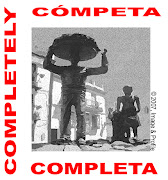 After a three-day marathon of tough negotiations, the 27-nation EU has agreed a major shake-up of its troubled wine sector, aimed at winning back consumers and market shares lost to the "new world" wines.
After a three-day marathon of tough negotiations, the 27-nation EU has agreed a major shake-up of its troubled wine sector, aimed at winning back consumers and market shares lost to the "new world" wines."In the long term we were heading for the abyss", Portuguese agriculture minister Jaime Silva said on Wednesday (19 December), after EU ministers struck a deal.
According to EU agriculture commissioner Mariann Fischer Boel, the reform's architect, "instead of spending much of our budget getting rid of unwanted surpluses, we can now concentrate on taking on our competitors and winning back market share".
She admitted, however, that "we [the European Commission] didn't get everything we wanted, but we have ended up with a well-balanced agreement. I hope the Member States will make good use of the new tools available".
Under the reform package, the bloc's wine industry should shrink by grubbing-up 175,000 hectares of vineyards over a three-year period of time, although the grubbing-up scheme will be voluntary.
Brussels hopes that unprofitable growers will leave the sector and those ones willing to do so will be offered a grubbing-up premium - a financial bonus, highest during the first year of the reform, while subsequently decreasing during the next two years.
On the other hand, current restrictions on planting rights will be lifted from 2015, with the possibility to prolong them at a national level until 2018, and allow competitive wine producers to expand their production.
The EU is the world's number one producer, exporter and consumer of wine, but it is facing increasing competition from "new world" wines from the US, Argentina, China, Australia, South Africa and Chile.
Wine consumption in Europe is falling steadily, while imports of wines are growing much faster than exports.
On current trends, excess wine production is expected to reach 15 percent of annual production by the end of this decade - something that would mean an enormous burden for EU coffers. The union already spends around half a billion euro a year just getting rid of surplus wine for which there is no market.
Several key points of the reform package tabled by commissioner Fischer Boel have been toned down, however, such as her attempt to ban the use of sugar for enriching wine.
Under the compromise deal, enrichment with sugar will continue to be allowed, but maximum levels are to be reduced. Northern vine-dressers such as Luxembourg, Germany, Austria or Slovakia were particularly against the ban, as they have less sunny weather compared to the southern states.
The south itself has secured that aid for the use of must - a sweetener used in that part of the continent - will be abolished only in four years, not immediately as required by the commission.
New member states, which joined the EU in 2004 and 2007, have won a fairer system of distribution of the EU money among capitals, something known as national financial envelopes.
These will allow EU states to adapt measures according to their particular situation, such as promotion in third countries, vineyard restructuring or innovation.
The reform of the wine sector - employing almost two-and-a-half million Europeans - will enter into force in August next year.
© 2007 EUobserver, All rights reserved
What do you think might be the effect on Cómpeta? - send your comments to us using the 'Comment' link below


1 comment:
Post a Comment